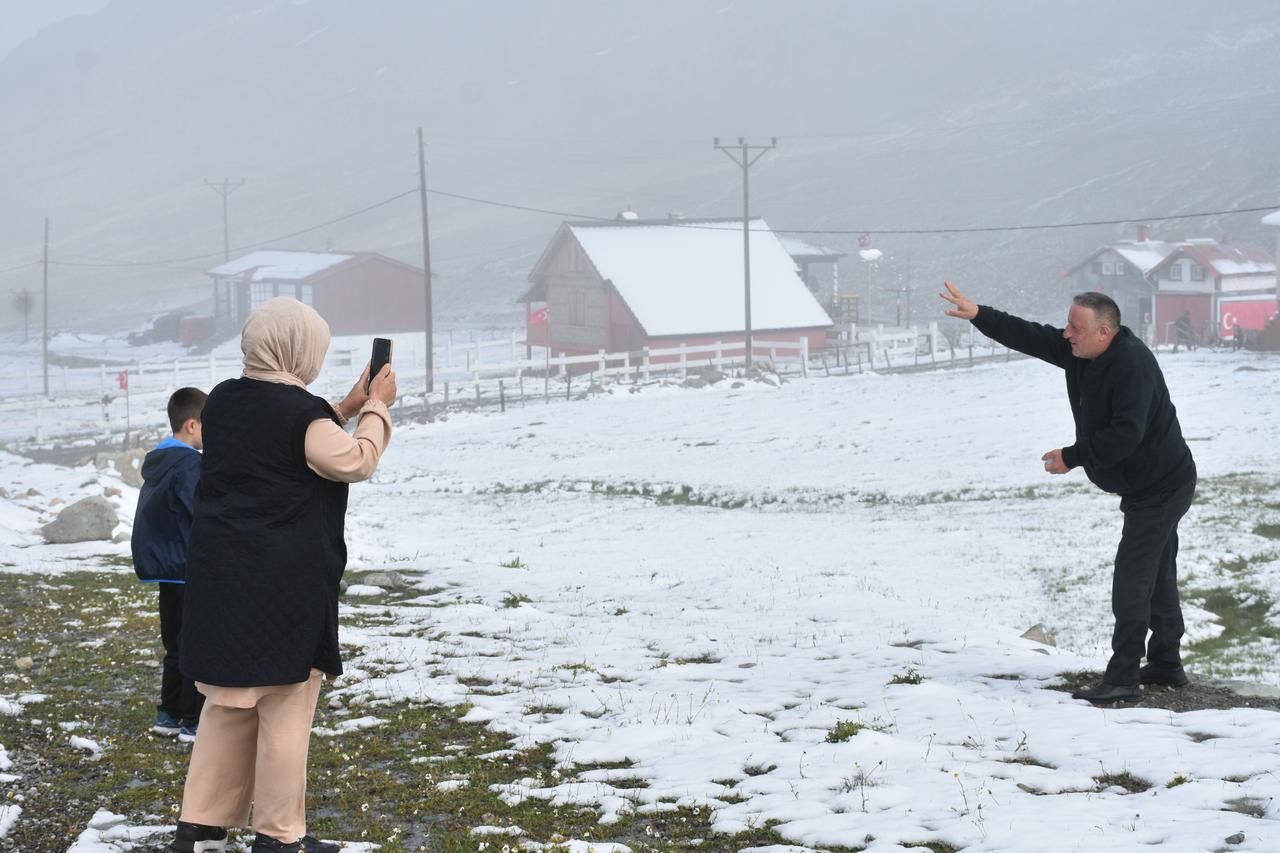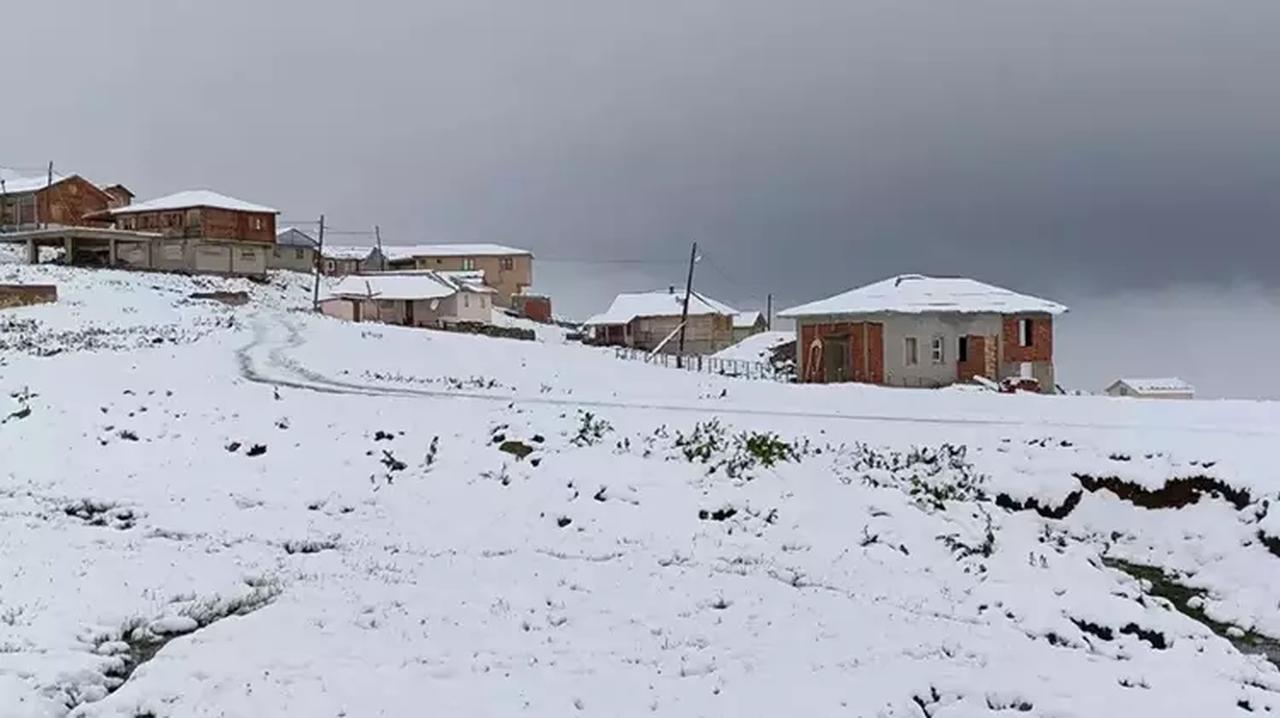
Snow fell along a 10-kilometer stretch in the far northeast of Türkiye on Friday in an unexpected weather event, while firefighters battled wildfires elsewhere in the country.
The heavy snow blanketed the highlands of Bayburt, Rize, and Trabzon, turning hills and mountains white. Meanwhile, intermittent heavy rain continues to affect the city centers.
In the highlands, snowfall transformed the area into a winter-like scene. The snow, which began overnight, intensified by dawn. Nature lovers camping in the snow-covered Ovit Highlands were taken by surprise, while local residents called it a “highland surprise.” This unusual July weather event drew significant attention on social media, with snowy images quickly garnering hundreds of comments and likes.

While snow fell across the northern provinces, firefighters were working tirelessly to extinguish forest fires in another part of the same geographical region in Türkiye.
Türkiye is once again battling forest fires in the first days of July. Especially in the Aegean and Mediterranean regions, a heat wave combined with low humidity and strong winds has sparked fires in multiple locations.
While intensive efforts by the Ministry of Agriculture and Forestry and the Disaster and Emergency Management Authority (AFAD) teams continue both on the ground and from the air, reports indicate that flames are approaching residential areas in some regions.
Following ongoing firefighting efforts, Agriculture and Forestry Minister Ibrahim Yumakli announced that the forest fires in Izmir’s Buca and Odemis districts, Bursa’s Yenisehir, Eskisehir’s Seyitgazi, Balıkesir’s Savastepe, Kahramanmaras’ Andirin, and Canakkale’s Can districts have been brought under control.
In light of the increasing frequency of extreme climate events—from wildfires and floods to unprecedented heat waves—public concern in Türkiye over climate change and its direct impact on daily life is on the rise.
In parallel, Türkiye’s newly introduced climate law—its first comprehensive legislation on the issue—has sparked intense debate. While the law aims for net-zero emissions and proposes a national carbon market, it has been criticized from both sides of the political spectrum.
Against this backdrop, experts stress that addressing climate change demands more than symbolic legislation. It requires inclusive, justice-based policies that strengthen disaster preparedness, empower local communities, and invest in public awareness and resilience-building efforts.